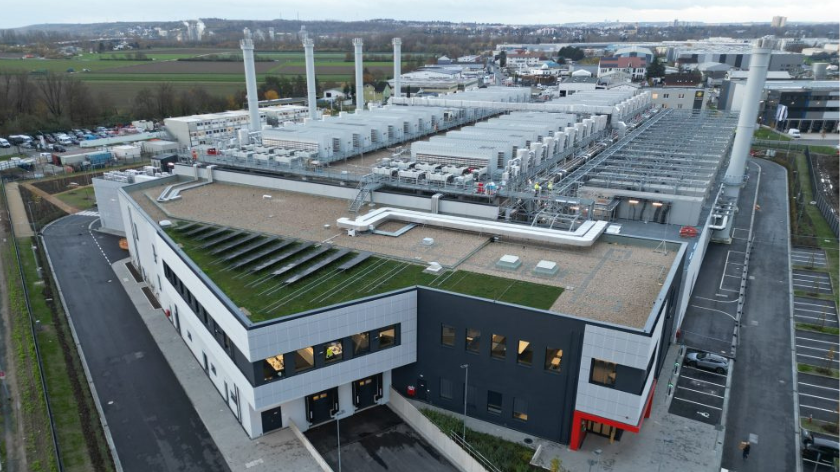
Yondr Group has reached a key milestone in its ambitious sustainable data center project in Bischofsheim, Germany, located south of Frankfurt. The company recently completed the first phase of its 40 MW data center, successfully deploying 20 MW of capacity. This achievement marks a significant step in the company’s efforts to build an energy-efficient, environmentally friendly hyperscale data center that aligns with growing demand for sustainable digital infrastructure.
The Bischofsheim facility is set to play a pivotal role in the region’s data hosting landscape. As a part of its broader plan, Yondr Group aims to develop a state-of-the-art data center ecosystem that incorporates cutting-edge technologies designed to minimize energy consumption and carbon emissions. The completion of the initial phase demonstrates the company’s commitment to sustainability while meeting the ever-expanding demand for high-performance computing and data storage.
Yondr’s strategy involves utilizing renewable energy sources, advanced cooling techniques, and energy-efficient power systems to ensure that the facility operates with minimal environmental impact. This is particularly significant as the global data center industry faces mounting pressure to reduce its carbon footprint amid the accelerating digital transformation. The Bischofsheim project is designed with the latest green technologies in mind, offering a robust solution for companies seeking environmentally conscious data hosting services.
The company’s decision to invest in this sustainable data center comes at a time when the need for scalable, energy-efficient digital infrastructure is growing exponentially. With industries increasingly relying on cloud computing, artificial intelligence, and big data analytics, the demand for data centers that can support these technologies is expected to rise sharply over the next few years. Yondr’s Frankfurt-area project, once fully completed, will provide critical infrastructure to support the digital economy in Germany and beyond.
Germany, with its established position as a European tech hub, has seen a steady influx of investments into data center development, driven by strong demand from the cloud services industry and global enterprises. Bischofsheim’s location, close to Frankfurt, enhances the project’s strategic appeal, given the city’s status as one of the primary data center hubs in Europe. Frankfurt is home to one of the world’s largest internet exchange points, DE-CIX, making it an ideal location for high-performance data hosting solutions.
The first phase of the Bischofsheim facility is equipped with energy-efficient cooling systems, low-carbon footprint designs, and power redundancy features, ensuring both reliability and environmental responsibility. The center’s energy supply will be primarily sourced from renewable sources, including wind and solar, aligning with Yondr’s goal to operate fully carbon-neutral data centers across its global network. The use of green energy will significantly reduce the operational carbon emissions, which is a crucial factor in the company’s sustainable development plan.
Yondr’s expansion in Europe is part of a broader global push to increase the capacity of sustainable data centers. The company has already made strides in other regions, including North America and Asia, but the Bischofsheim data center is particularly notable for its focus on integrating the latest eco-friendly technologies. The project underscores the growing importance of sustainability in the data center sector, which has become a focal point for both environmental advocates and industry leaders.
The success of the first phase of the Bischofsheim data center is also a testament to Yondr’s ability to manage large-scale, complex construction projects. The company is known for its expertise in building and operating hyperscale data centers, and its experience has enabled it to execute the first phase on time and within budget. As construction progresses toward the final 20 MW of the facility, Yondr aims to further enhance the operational efficiency of the site, incorporating even more advanced technologies.
Yondr’s approach to sustainability is not limited to energy efficiency but extends to the entire lifecycle of the data center, including design, construction, and operations. The company’s commitment to minimizing waste and reducing the environmental impact of its facilities has been recognized by several industry certifications, which highlight its dedication to both innovation and environmental responsibility.
The second phase of the Bischofsheim data center is expected to be completed in the coming months, with full operational capacity anticipated within the next year. Upon completion, the facility will serve as one of the largest sustainable data centers in the region, offering colocation services to a wide range of clients, including cloud providers, enterprises, and internet companies.




